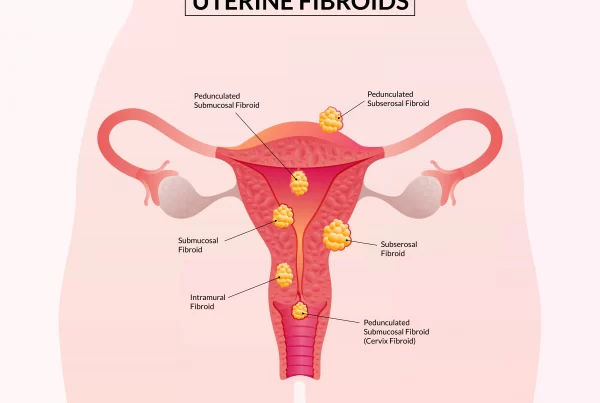If you are a woman, you will have learned to deal with the inconveniences and discomforts your monthly period brings. While some women experience regular cycles and go through the process smoothly, many women face problems with their periods.
To understand what common problems are, it’s important to know what a “normal” cycle is like – even an average cycle varies between individuals. An average menstrual cycle lasts 28 days, and anything between 21 and 35 days is considered regular. An average period lasts between 2 to 7 days and the average amount of blood lost during each period is between 30 – 40ml.
Some of the common period problems can be categorised into:
Irregular Period Cycles
Periods are defined as irregular if they occur more frequently than 21 days or less frequently than 35 days, or if they last longer than 8 days. Irregular cycles are often the result of hormonal imbalances which can be caused by:
- Excessive weight loss or gain (e.g. from eating disorders or illnesses)
- Increased exercise
- Increased stress
- Polycystic ovary syndrome (PCOS)
- Breastfeeding
- Asherman’s Syndrome
Taking medications such as the birth control pill can also cause lighter periods or amenorrhea (absent periods).
Irregular cycles are common especially during adolescence and in the later years as women approach menopause.
If your period is irregular, your gynaecologist can scan your pelvic organs and conduct blood tests to check on your hormone levels. They may also suggest hormonal pills to regulate the period cycle or lifestyle modifications to help regulate overall health issues such as weight or stress.
Heavy Menstrual Bleeding
Heavy menstrual bleeding is considered to be 60ml or more in each cycle. Excessive blood loss during a period may be caused by hormonal imbalance, uterine fibroids, polyps, intrauterine device (IUD), pregnancy complications, cancers, bleeding disorders or thyroid disorders. If you have to change your pad or tampon every hour or are passing blood clots during your period, you may be bleeding excessively.
To prescribe treatment, your gynaecologist will scan the womb, do a blood test for anaemia, or a possible hormonal evaluation. They may also sample some womb lining tissue for biopsy testing or a hysteroscopy D/C to examine the womb lining further. Depending on the diagnosis, treatment may be in the form of iron tablets, tranexamic acid, hormones, Mirena IUD or surgery.
Painful Cramps
During menstruation, the walls of the uterus contract faster to encourage shedding of the womb lining. Hence, some women experience cramping during their period, which is expected and normal. However, if you experience severe pain which prevents you from working or functioning without painkillers, you may need to see a gynaecologist.
Severely painful periods (dysmenorrhea) may be caused by underlying conditions such as endometriosis, adenomyosis, fibroids or pelvic inflammatory disease.
In these cases, your gynaecologist could conduct an ultrasound to assess for fibroids or ovarian cysts. They may also screen for any possible pelvic infection or explain various pain relief or hormonal options available.
If you think you may have a problem with your periods, make an appointment with our gynaecologists.



